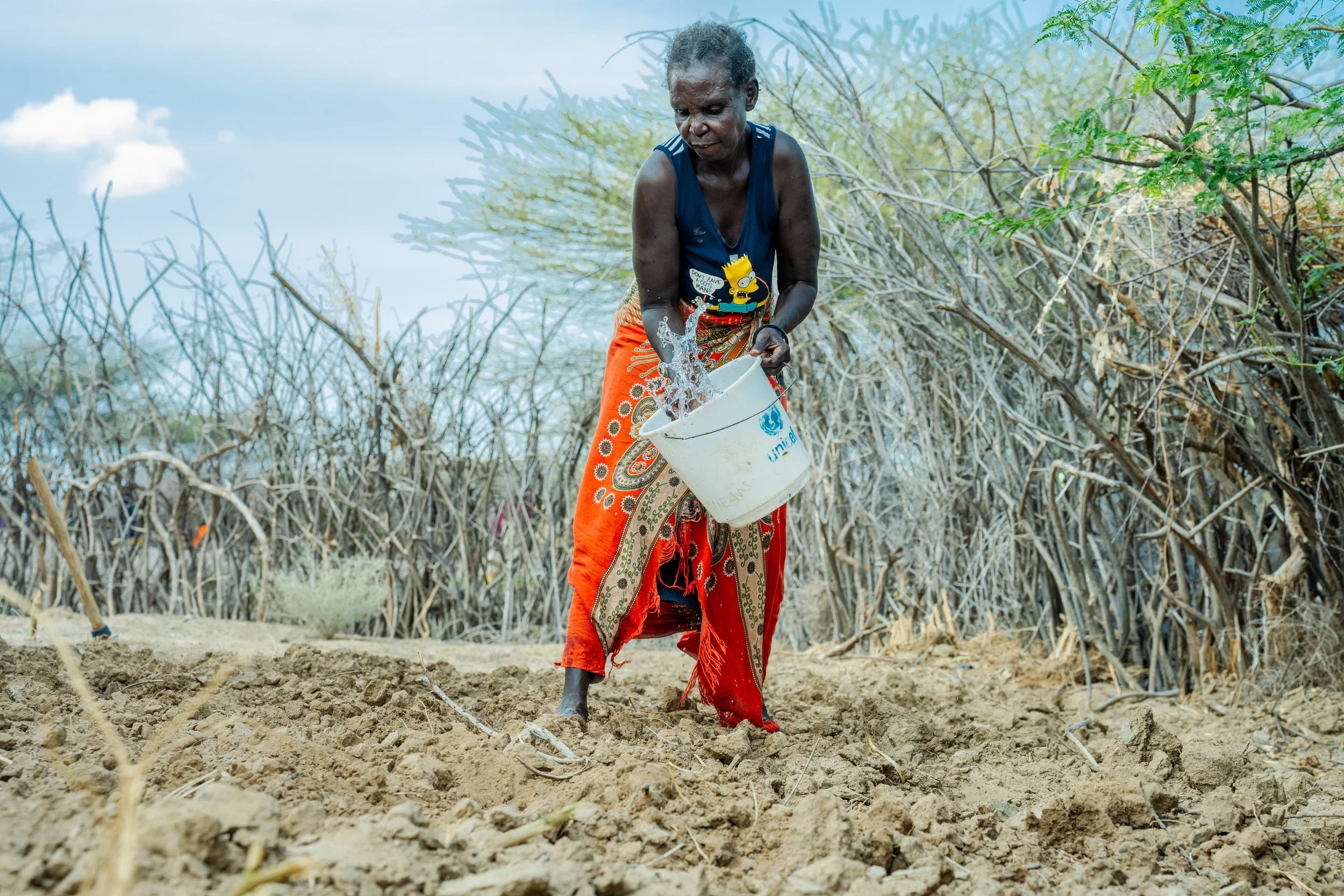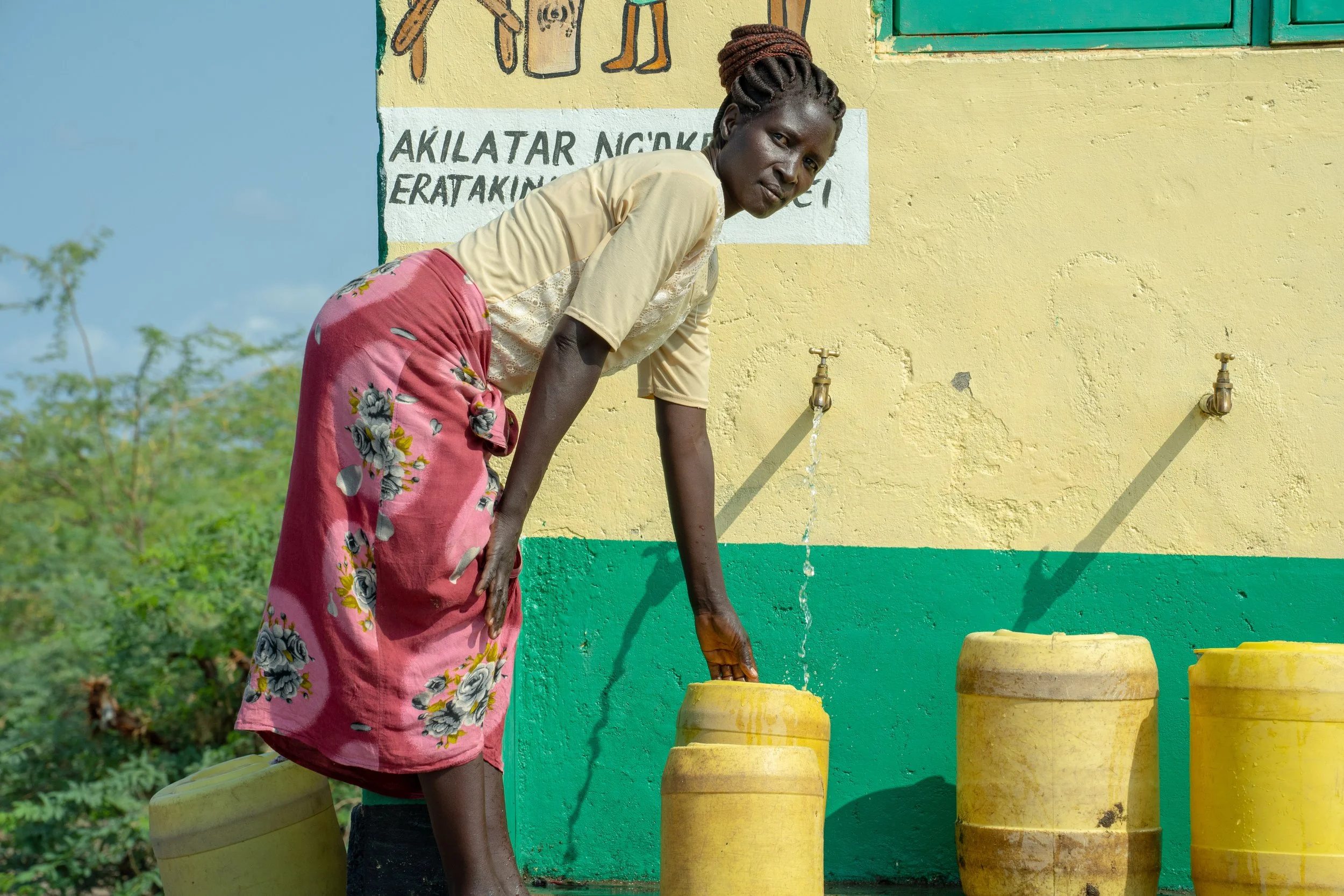Horn of Africa Food Security Response – Kenya
Above: Children walk through carcasses as they roll home water jerrycans in Wajir Country, Kenya. Drought has decimated almost all animals in the area. (Photo: Billy Owiti, Oxfam)
In 2023-24, Kenya experienced its worst drought in over 40 years, with around 4.4 million people facing high levels of food insecurity – the highest level seen in Kenya in years and a five-fold increase from 2020.
A combination of cyclical shocks exacerbated the situation, including five successive below-average rainy seasons, rising food prices due to the COVID-19 pandemic and supply chain disruptions, alongside conflict and insecurity within arid and semi-arid regions. Livestock was decimated, with an estimated 2.5 million head of livestock lost, further impacting livelihoods for pastoralists, one of the main economic activities in the country’s dry regions. Kenya also hosts some half a million refugees.
In Marsabit County, which faced an emergency drought phase, over 55% of the population was food insecure and households were resorting to livelihoods coping strategies, such as begging, to address food gaps.
Compounding the challenges facing the region, intense flooding in April and May 2024 left a path of destruction, decimating more than 65,000 acres of farmland.
The AHP Response
On 11 February 2023, the Australian Government announced $25 million in emergency assistance to respond to growing global food insecurity. This included an additional $15 million for the Horn of Africa to provide food, water and other essential support, delivered through Australian and local NGOs, the International Committee of the Red Cross and UN partners.
From this funding, $3 million was allocated for an activation of the Australian Humanitarian Partnership (AHP) in Kenya. An additional activation in Ethiopia was also funded through this package.
A second 12 month phase of the Kenya response commenced in September 2024, with an additional $4 million in Australian Government funding.
The first phase of the AHP response was led by Oxfam Australia through its national affiliate, Oxfam in Kenya, and two independent national organisations – Strategies for Northern Development (SND) and Pastoralist Community Initiative and Development Assistance (PACIDA) – working under the umbrella of the Arid and Semi-Arid Lands Humanitarian Network (AHN) in Marsabit County.
AHN, a membership network of 13 local organisations including Women’s Rights Organisations covering 10 of the worst affected counties, coordinated the drought response within the framework of local humanitarian leadership.
The first phase of the response achieved its goal of improving food security to 1500 households, evidenced by the number of households with an acceptable Food Consumption Score (FCS) improving from 8% at the beginning of the response to 35% by midline.
The second phase will again be led by Oxfam, along with Strategies for Northern Development (SND), Pastoralist Community Initiative and Development Assistance (PACIDA), Turkana Pastoralist Development Organization (TUPADO), Pastoralist Girls Initiative (PGI) and the Arid and Semi-Arid Lands Humanitarian Network (AHN).
Taking into account the learnings from the first phase, the second phase will build on work done in response to the drought in Marsabit and Turkana, and expand to support flood recovery efforts in two additional counties: Tana River and Garissa.
Having stabilised the food security situation in the targeted area, this phase will focus on promoting economic security and greater resilience to shocks through livelihood resilience. Through Climate-Smart Nutrition-Sensitive Production, the response hopes to build sustainable productive practices that continue into the future and have lasting impacts on nutrition.
The response will also build on improvements to water access achieved in Phase I, and continue protection programming to reduce gender-based violence and other protection risks.
The Kenya response will continue until August 2025.





